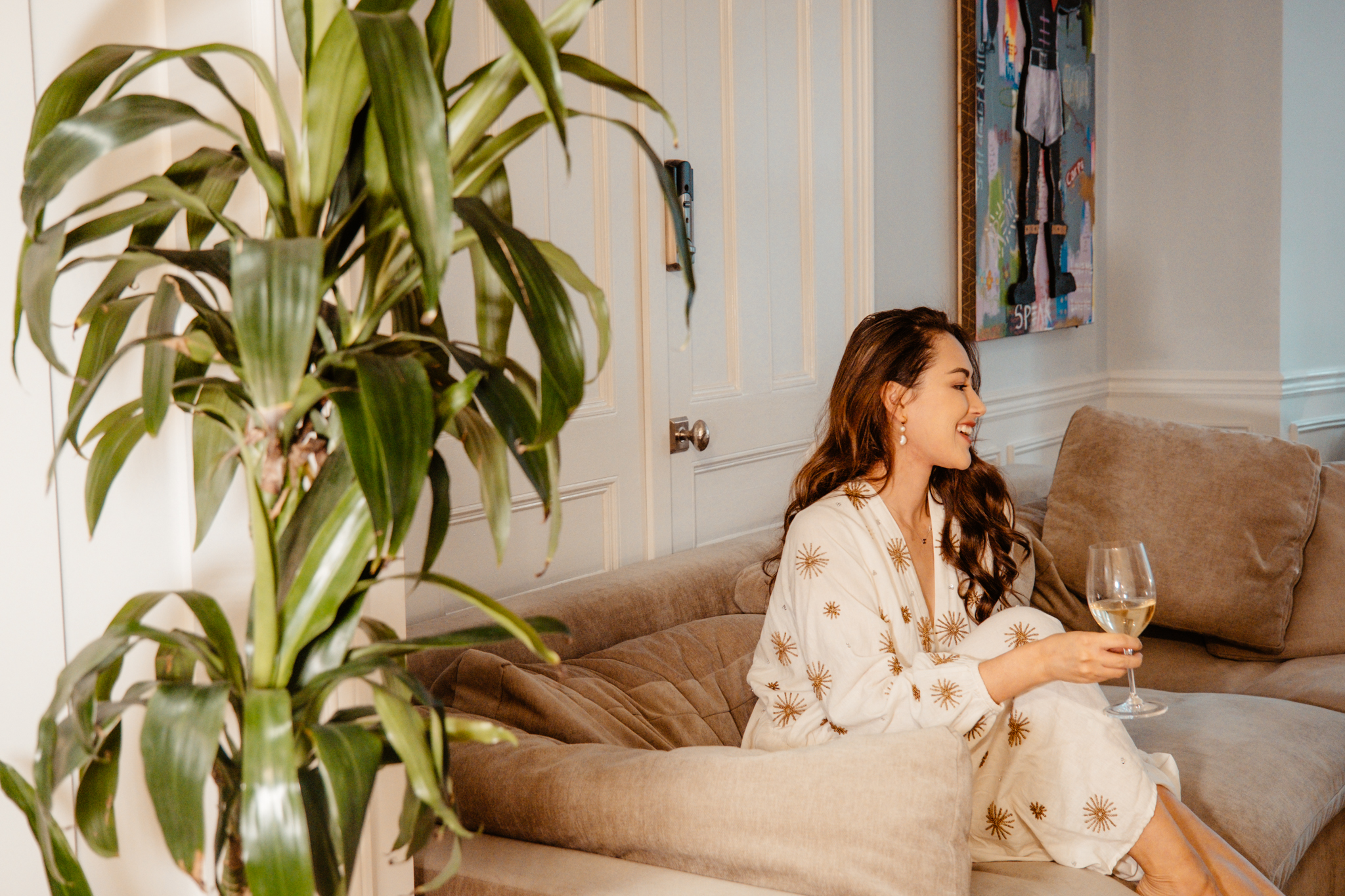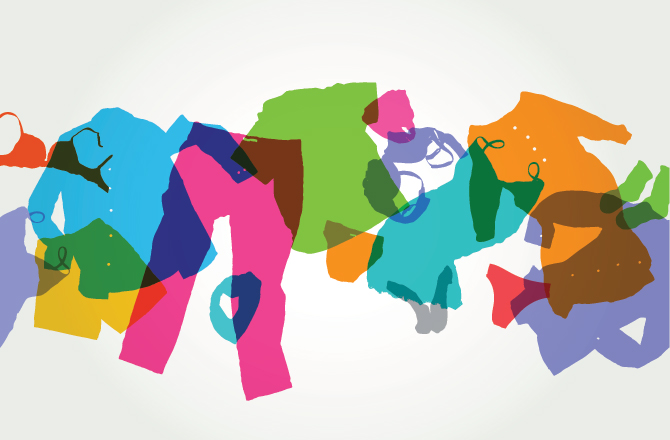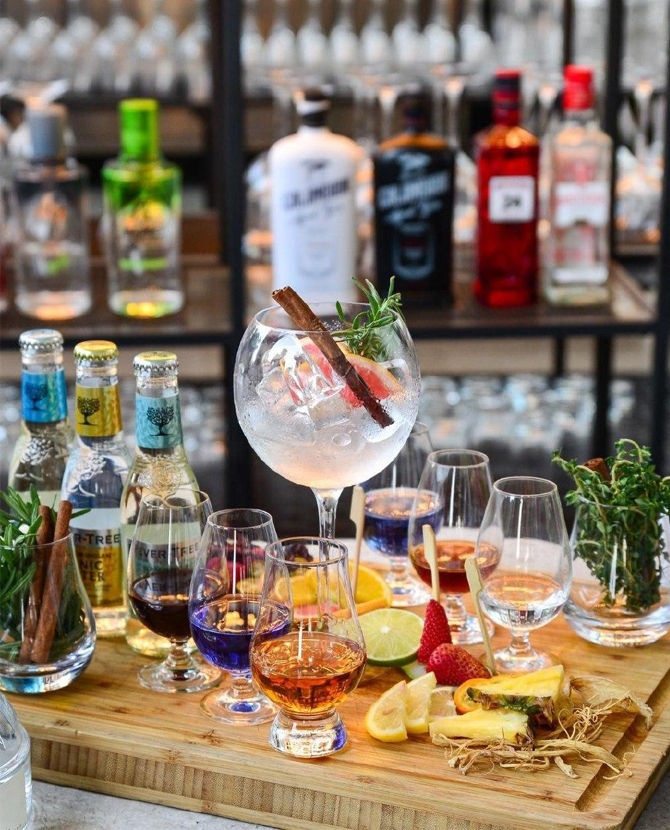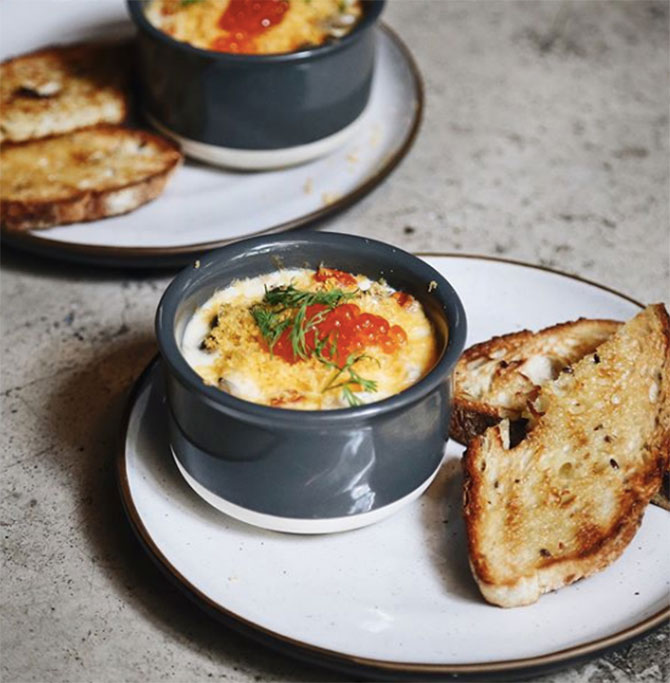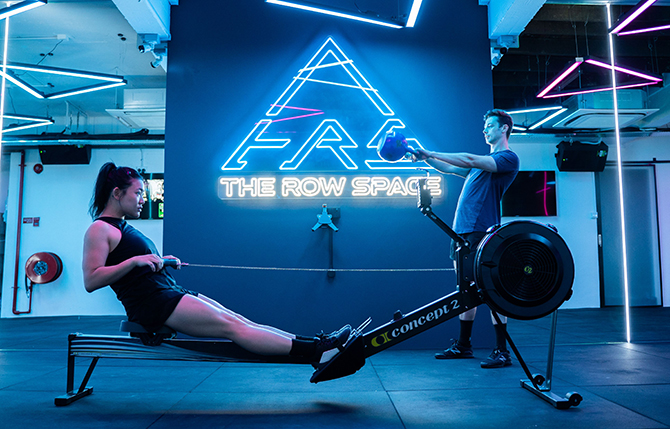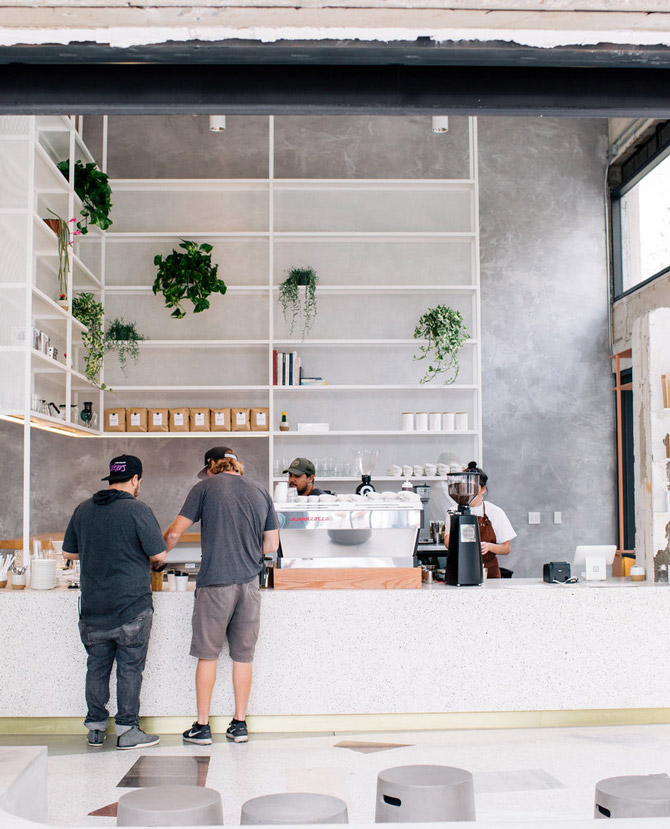Sustainability.
We’ve heard the word, then overheard it, and then heard it some more. Clime change, global warming, melting snowcaps, drowning cities – it all sounds rather bleak and hopeless before you’ve even begun to understand how to wrap your head around it. It can feel like the issue is insurmountable and beyond the grasp of the average person, even when we try to make the right decisions and opt for the better choice.
But where conscious consumption can feel overwhelming at the best of times, there are a few key emerging advocates in Singapore, who are enabling the conversation to shift gently yet powerfully towards better understanding and adapting a lifestyle that’s not just good for us, but for the environment. Their message is unified: you don’t have to get it perfect to get it right when it comes to sustainability. You just have to start. By celebrating the little acts of service we do for the wider good of the world every day, we can make an impact that’s longer-lasting and more permeating than we think.
Buro. Singapore partners with Champagne Telmont this month, an eco-conscious option for the modern day drinker, sourcing sustainability from sip to celebration. Founded in 1912 by Henri Lhôpital in Damery, Telmont is a century-old, familial wine-growing and wine-making business, with a focus on organic conversion and the philosophy to allow the terroir reveal its lively and true character through their unique wines. Consciously sold without a box, Telmont is amongst the only luxury champagnes in the world not just committed to, but designed around the mission of preservation.
Currently, 72% of their estate’s 24.5 hectares are certified in organic agriculture or are in the process of conversion – with the aim to convert 100% of the estate by 2025. Additionally, the brand has already pledged to only use electric vehicles, and is exploring a transition to 100% renewable electricity – promoting use of ‘green’ energy sources for all its activities. This involves purchasing adapted energy and the development of an on-site solar power production system. It’s a guilt-free sip of celebration, without compromising any of the skill, expertise, quality and superiority of a luxury champagne.
To kick-off the festive season with conscience, we asked five voices, five questions on environmental conservation in Singapore. Here, they give us their insight into why and how they drive their individual causes, what the future for preservation looks like for the Lion City and how they celebrate and toast to the small wins every day.
Yumika Hoskin, Host, Model and Sustainability Advocate
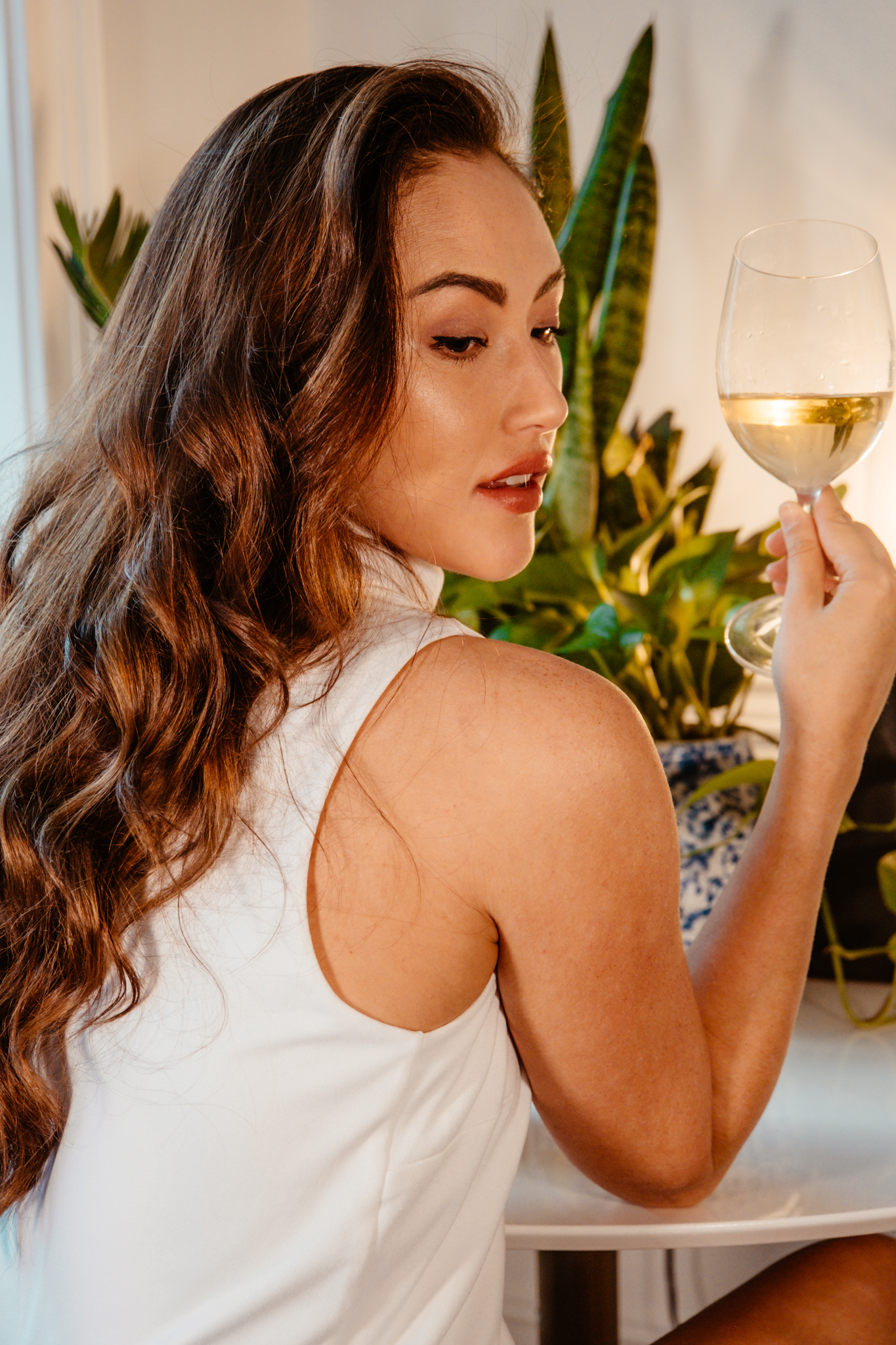
What inspires you about sustainability?
I think it is very inspiring to see a combination of our empath as humans, our intelligence and consideration to approaching living methods that impacts the environment as little as possible. And to put it simply, it also just makes everything you consume or experience heartfelt. You learn to ask the questions, be curious and conscious of every action you do and take. But the greatest part of all this inspiration is being out in nature. I don’t know anyone who has sat in nature and said that they don’t feel happier, more present and more calm. Humans have forgotten how precious and fragile nature is until it’s gone and for too long now have we overlooked impact over convenience. It is time to put the planet first and protect our environment. And as a smart species who care about survival, I am sure if we all come together collectively, we can certainly learn to live in balance.
How and when did you decide to take up the cause?
Growing up in Australia, seeing the polluted beaches full of rubbish left behind or washing up on shores was the first confrontation to human impact on the environment that I witnessed. I am half Japanese so from cultural influence, my mother set the example early on. She would always make us use reusable water bottles and reusable lunch boxes throughout my schooling, and she would and still repurposes anything she can, such as wrapping paper or household items. Although perhaps her influence came from Japanese creativity and sentiment towards items, it was the perfect upbringing to utilise the lifecycle of items. A combination of taking up diving and witnessing the effects of coral bleaching and moving to Singapore, I really started to notice the consumption and toxicity of single use plastics. Used for less than a minute and discarded straight away such as the hand carriers you would get for your bubble tea. The plastic straws, bag and string for your Kopi. I would start noticing single use cutlery and the non recyclable food packaging from lunches when I was on set for photoshoots. The amount of single use plastic bags given at the grocery stores that never got packed economically made me so frustrated and feel guilty. After being in the entertainment industry, I always knew I wanted to be part of a bigger cause and my search for purpose began. But interestingly the realisation that my passion for sustainability was always there all along and I just needed to wake up my consciousness and start asking the questions. Is this recyclable? Where does this end up? Who recycles this for me? How long does this take to break down? How could I fulfil my skills achieved from my career whilst advocating for a cause that does not have enough noise in an industry that needs to be disrupted.
Why do you think it’s so challenging for brands to embrace sustainability and how can they do it better?
By the traditional means of running a business and making a profit, sustainability comes with added costs as your whole supply chain is reassessed. Customers demand transparency these days and with outlets such as social media now, everyone has the confidence to say their opinion and let it be heard. Brands who care more about profit than running a business with integrity, consideration and accountability have no place in our world these days, without suffering the backlash and the exposure from the public. So it certainly can be challenging for businesses who have been running for years, especially generationally, to restructure its operations beyond supply and demand. Is running a “sustainable” business more expensive? Yes. However with the world online and exposed, there are just no more excuses to justify turning a blind eye to unethical operational methods. Greenwashing as well is so easily exposed these days, that the demand for ethically run and environmental consciousness cannot be ignored.
But just like an individual changing their habits one step at a time, a company can do that collectively. It starts with commitment and staying true to your word. When a company operates honourably and with intent for change, the loyal customers keep coming back. You also attract a community of people who are aligned with yours. Products and services can no longer be just products. They need to have sentiment and a story that makes it what it is. And the fulfilment from customers choosing to buy what you are offering as a business after seeing and reading about all you have put into making it what it is, far outweighs any sale or profit where only your business benefits.
What do you think is the future of sustainability in Singapore?
I am really excited to see Singapore’s initiatives keep growing. Singapore is truly a testament to what our future cities could look like and how they can operate. So with a few more integrations, I believe that they lead the way in pioneering an example to the rest of the world of what a sustainable urban city can be. One of the most integral sectors Singapore needs to improve is waste management as incineration of rubbish is not a solution. However with the right technological advances, waste can be an incredible energy source that can power grids such as how they have converted waste at Gardens by the Bay as an energy source. As a small but mighty country, Singapore has the perfect size, conditions and community cooperation to be able to adapt in the inevitable renewable energy sources world with the integration of urban modern living amongst nature. Electric buses have started showing up on the roads, I have had the pleasure to host more and more electric car launches and some of my favourite spots to shop have been the abundance of package free shops such as “The Source” and “Scoop Wholefoods” that have popped up in most malls. Go Singapore, lead the way!
How do you celebrate small wins towards your cause and what’s your advice to others looking to take a step towards sustainability?
My brand and my motto is “Change a habit, change the world”. So changing one small step at a time makes a difference to the future. We need to move away from an “out of sight, out of mind” mentality and take responsibility with action. Assess where in your life, you can make your first and most convenient change. For me, it was single use plastic bags and switching to reusable ones that are convenient to carry around with me like Peco Bag. Then after that it was the coffee cup. The collapsible reusable straw and then my home products started to change. Whenever I see someone purchase a Peco Bag I get so fulfilled and happy because I started it as a passion project hoping to influence change. And with one more person taking action, it is one more person I know on the same mission as me for a greener future. Bring out the sustainable champagne, there is always a reason to celebrate as we all acknowledge the need for sustainability as our inevitable prosperous future.
Paul Foster, Sustainability Advocate, Actor and Host
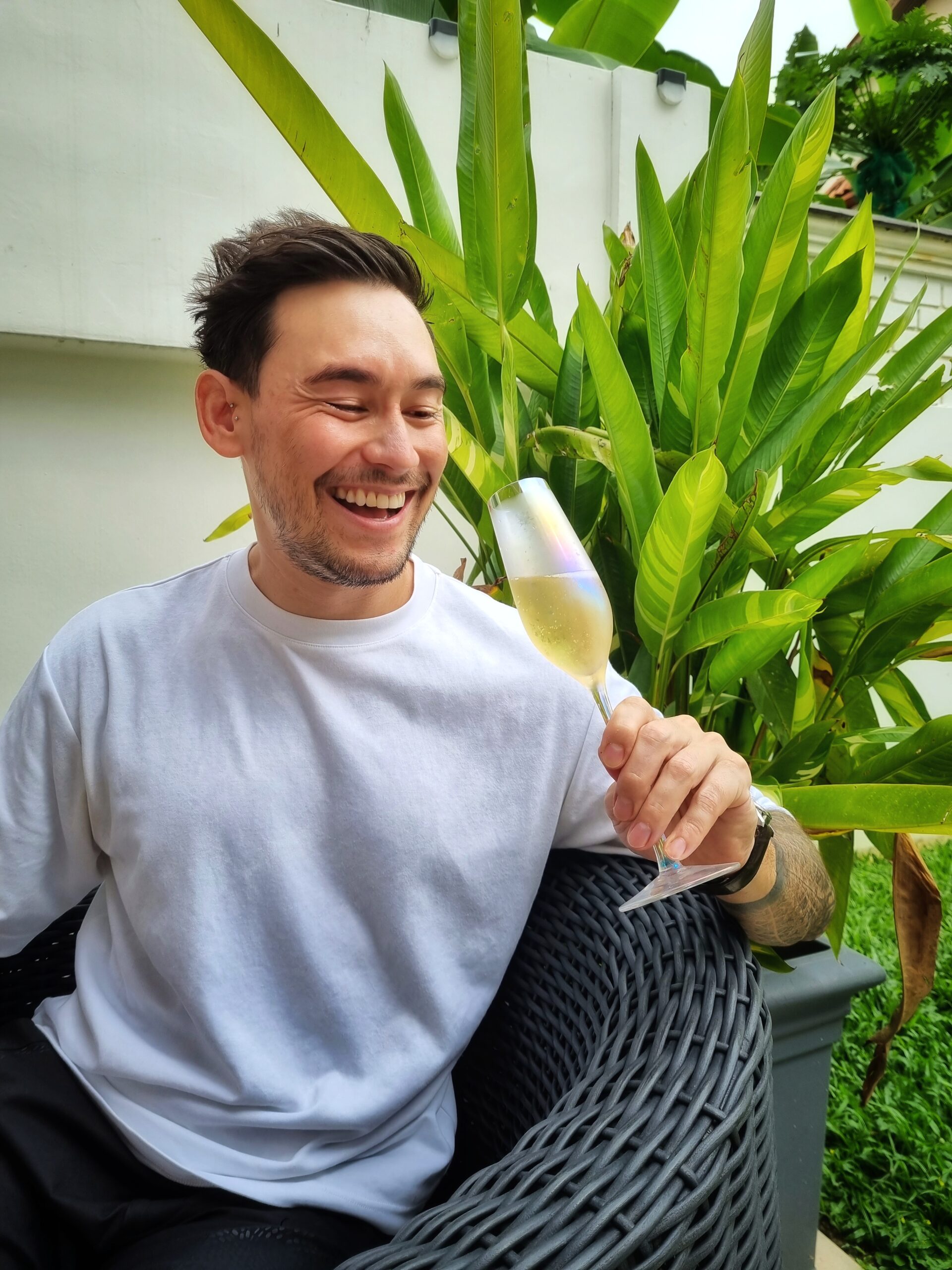
What inspires you about sustainability?
Sustainability inspires me to do better! It is our responsibility to shift the balance back into Mother Nature’s favour and we are the generation that really needs to put everything into action. I think there has been a lot of awareness and changes made but we are still far off from making big the differences. Still, the bottom line is we have to start somewhere because if we don’t, we will not make things any better, so sustainability should be motivating all of us right now.
How and when did you decide to take up the cause?
I just love nature, growing up I was always outdoors! I have always felt a great connection with the earth, so I’d like to believe I have always tried to take care of our planet. But I would say it was around 2014 that I really started to do more and by 2018 I was really learning and applying more to not only my daily life but also my work.
Why do you think it’s so challenging for brands to embrace sustainability and how can they do it better?
It is a challenge because changes in systems and processes can’t happen overnight. There is a lot to be done and it needs to be implemented over time. If you notice, those who started many years ago are only now really able to announce such initiatives, and those that want to do better will share their upcoming goals to be achieved in years to come.
But the great thing is many brands have realised they have to be more eco-conscious throughout the supply chain and company culture, and once you embrace this ethos, it’s just a matter of time to make the right changes.
What do you think is the future of sustainability in Singapore?
I think Singapore has a great chance to be a leading nation in sustainability, but we still have a ways to go! We already have many systems in place, we are organised, and I think if we as a nation of consumers and industry can start to rally for the some goals, there is no reason why we can’t achieve significant milestones. Unfortunately I still feel we have a lack of general awareness and can be very complacent when it comes to individual efforts, but if we can one this gap, I also feel we can start making some big progress.
This is way we need those in decision making positions to push the right agendas forward and this is why we need to educate the next generation more on sustainability, so that we don’t lose momentum and let that gap get wider.
How do you celebrate small wins towards your cause and what’s your advice to others looking to take a step towards sustainability?
It is literally all about that! Being sustainable is a journey, it’s one step at a time and seeing how you can make the right adjustments to be more eco-friendly in your daily life. So don’t be discouraged at the scale of the problem, but draw inspiration instead that every little thing you do adds up and makes a difference.
I think the easiest way is to start at home by implementing and improving what you can control, and slowly but surely, you start to figure out what works, so can get better over time!
Chantal Windley, Founder of Mrs. Deco Swimwear

What inspires you about sustainability?
I have been a water baby since young and when I first learned to dive back in 2018, I fell in love with the animals and ocean life. I then told myself if I could ever create something, I’d make sure it would be as environmental friendly as possible.
How and when did you decide to take up the cause?
In 2020 June to August, I was working as a swabber for the government to earn some extra income, and I realised how much plastic waste is entailed in the process and gets thrown out every day as a result. It really broke my heart! My debut collection for Mrs. Deco was launched in August 2020, and only the printed fabrics were made of recycled plastic bottles. That meant only 50% of my products were sustainable at the time and that really bothered me too. I didn’t have a large enough income then to invest into it at the time. However I was determined and I said to myself, I’m manifesting that in a year’s time, all my ladies swimwear pieces would be made of 100% recycled fabrics. True enough, I launched it in October this year and yes, they’re fully sustainable! I’m still working on the whole brand to be fully sustainable as a whole, but it’s so beautiful to be able to create something so versatile and gorgeous, that does not cause extra harm to the environment.
Why do you think it’s so challenging for brands to embrace sustainability and how can they do it better?
I think the biggest reason as to why it’s challenging for brands to go fully sustainable and speaking from experience – is because of the cost and the limited factories that are able to provide the materials etc. My advice to anyone trying to do the same is, is to just start by becoming aware of your options (my personal motto: awareness is the first step to change) and continue to make a conscious effort and it’s okay to figure it out as you go!
What do you think is the future of sustainability in Singapore?
I do feel we have a long way to go in Singapore, but hopefully having influencers and newer businesses or even just businesses in general, spread more awareness about why it is important for our future generations to come will make an impact and is already doing so. I already definitely see more brands now introducing sustainable items and options every day.
How do you celebrate small wins towards your cause and what’s your advice to others looking to take a step towards sustainability?
I haven’t celebrated the cause and any impact made in a massive way as yet, but I just feel happy inside that I am doing my part. I will be making a small donation of Mrs. Deco profits annually to a few marine life & sustainable charities (like the WWF) starting this year and that makes me excited!
Victoria Cheng, Fitness, Lifestyle and Esports Influencer

What inspires you about sustainability?
As a naturally very outdoorsy person, the most obvious element of that is being appreciative of nature. As both a diver and a horseback rider, marine sustainability is really important to me and it touches me on a different level. I love seeing the diversity of the coral reefs in the ocean and being able to interact with the marine life.
How and when did you decide to take up the cause?
When I was about 16 or 17 years old, I went to the Great Barrier Reef and I saw a school of barracudas swimming and I really wished I could’ve been down there. I then went back to visit around 3 years ago and I was just horrified at how different the reefs looked. It’s lost so much of its lushness and its life, it made me terribly sad. Another experience was visiting Mongolia. There are entire terrains and fresh-water streams that have glacial pools and being able to how untouched they are as relatively human-free areas, it shows you the power of preservation.
Why do you think it’s so challenging for brands to embrace sustainability and how can they do it better?
I don’t actually think it’s challenging for brands to embrace it and in fact, many are. But it’s about why they’re doing it. If it’s just for Instagram, then it’s just getting on the bandwagon. But my caution to brands is to think about what they’re creating and sometimes in a bid to be trendy and sustainable, they may actually be contributing to the damage.
Also please DO the research in how to actually be a more sustainable company. I’ve seen companies that give out metal straws wrapped in plastic. Another example is the misconception that tote bags are more sustainable vs. plastic bags, but in some cases, once you factor in the carbon footprint of having those bags created. I really encourage companies to hire specialist scientists if they’re really committing to the path of sustainability, to ensure that you don’t end up with what can be misinterpreted as a hollow marketing campaign as opposed to a commitment to a cause they truly believe in.
What do you think is the future of sustainability in Singapore?
We’re a country full of engineers and there’s so much potential! We’re a smaller country and I think it’s very achievable. What I hope is that we can truly develop a proper recycling program. There are lots of groups and advocates for it and there are pockets of people investing in it via putting their products in the right-coloured bins etc. but we still may not have the right level of education about it. Singapore is definitely getting there and we’re a progressive country and more-so, we have to get there. I’m part of a campaign at the moment, where we’re trying to really bring home the message that sustainability doesn’t have to be seen as an act of doing something for the environment, but more as an act of self-care.
Being greener, better and healthier is also good for you, not just for the world around you. For me, I picked a home that has a lot of ventilation e.g. huge balcony, doors, floor-to-ceiling windows and it enables natural light and air. I understand it’s a privilege to be able to be selective, but we can make small choices in our own capacity. I also think about things like modern lightbulbs and bringing together the power of technology to enable a more environmentally-conscious experience – even through things like Samsung washing machines and Google Home that allow you to track usage.
How do you celebrate small wins towards your cause and what’s your advice to others looking to take a step towards sustainability?
I just celebrate it by living it day to day. My biggest insight is to remember that being more eco-friendly in your household, is just better for you. When I feel stressed, I go to my balcony full of natural light and plants, automatically calms me down. I purposely picked my office to be in this room and after looking at blue light, I’ll go outside and tend to my plants and water them, and it instantly just makes me feel so relaxed. There is just no downside to being sustainable – even if it starts out as a minor inconvenience. You don’t have to transform your entire lifestyle or become a totally boho person to adopt it. Start small and go one step at a time.
Susannah Jaffer, Founder of Sustainability Site: Zerrin.com
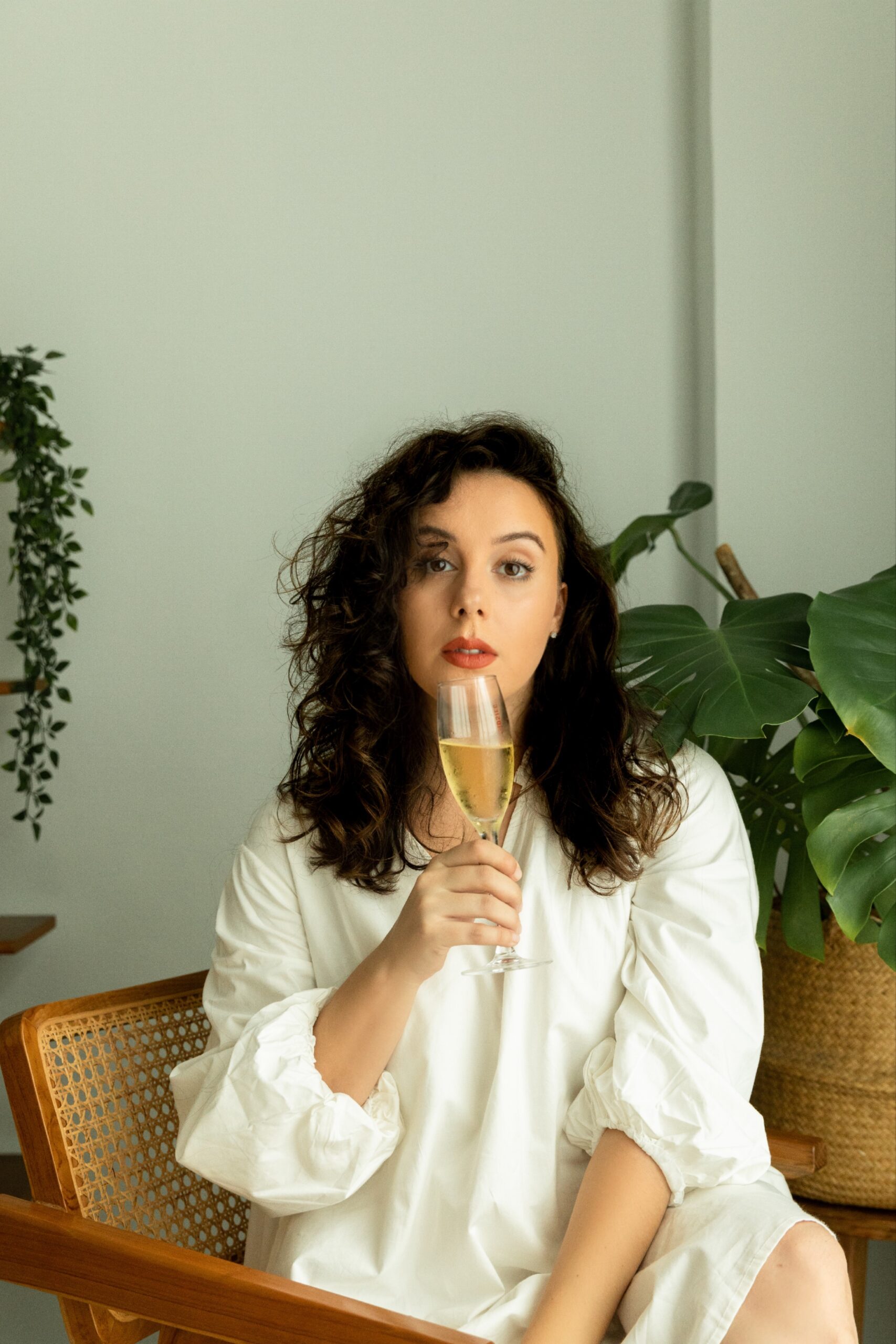
What inspires you about sustainability?
Sustainability inspires a greater sense of connection within us—to the natural world, to the things we consume, to the ways we spend our time. Given the capitalist systems we grow up in, these are all areas we’ve been subconsciously trained to become detached from and nonchalant about. Once you empathise with the interconnectedness of things and tune out from consumerist culture, life becomes more meaningful and simplified. It’s actually quite enriching.
For me, learning about the need for a more sustainable fashion industry was a vehicle for mindfulness in my life. It gave me purpose, teaching me you could marry consciousness and creativity, which gave me a much-needed jolt out of the autopilot I was on in my career.
How and when did you decide to take up the cause?
After a few years of working as a magazine editor, I started to feel like I lacked purpose. Despite being an industry ‘insider’, on a personal level I didn’t feel like I fit in. I was never wowed or impressed by the offerings or narratives of luxury or fast fashion brands; I felt they lacked substance and inclusivity (and a lot of the time, quality. Plus, who wants to look like everyone else?) But what kept me inspired about the industry was its imagination, creativity and storytelling, so that’s what I held onto to keep me going.
Deep down, I knew there had to be a more meaningful way to engage with fashion. Gradually, as I started learning more about the environmental and social cost of clothing consumption and production on the planet, I realised that change was a must, not an option.
While coming to terms with any of my own toxic shopping habits, I discovered an array of design-led brands that created amazing products in a more mindful way. But, one thing they all had in common is that they struggled to create awareness, reach the right customers and find their voice. That problem kept me up at night, and that’s where the idea of ZERRIN sprung from; a platform that would connect creative, conscious brands and consumers while demystifying what a greener lifestyle can look like.
Why do you think it’s so challenging for brands to embrace sustainability and how can they do it better?
There are so many reasons; the cost (eco-friendly materials or ingredients are more expensive) or the lack of connections or network are big ones. For some, it also comes down to making an effort to change the way things have always been done. Many of the world’s biggest brands, with the largest supply chains, are now suffering from legacy issues because integrating sustainability into their business model is ridiculously complex.
Another thing that brands grapple with, especially in the fashion industry, is reconciling sustainability with future growth. On a planet with finite resources, it doesn’t make ecological sense to continue to create billions of garments or products a year. Nothing can be infinitely recycled, so that can’t be used as an excuse either. On the flip side, there are many smaller independent brands who create only small quantities of products, or who have secondhand models, that grapple with how to build a business that balances people, planet andprofit.
Ultimately, brands can do better by being as transparent as possible with their practices. They shouldn’t be afraid to acknowledge that they don’t have everything right; consumers respect this much more than a brand that’s greenwashing. It’s always about progress over perfection.
What do you think is the future of sustainability in Singapore?
Singapore is an extraordinary place. People often critique the country as lacking style and edge, but I truly believe that, with its garden city backdrop and technological advances, it has the potential to become a recognised hub of conscious creativity and innovation. I’m glad to see the advances in government policy around green energy and other eco initiatives. Though it has quite a way to go to improve its infrastructure and approach to certain issues (like recycling and waste management) I believe Singapore is doing what it can to lead by example.
How do you celebrate small wins towards your cause and what’s your advice to others looking to take a step towards sustainability?
When I launched my business four years ago, sustainability was not a word you saw crop up in local fashion and beauty titles. It’s been a bumpy journey. But, every customer, every event attendee or brand that performs well with us is a win and I’ve learnt to celebrate the small things rather than sweat the big stuff too much.
When it comes to taking steps towards sustainability, living a more greener lifestyle isn’t really about the things you buy, the events you attend or the circles you hang around with; it’s about adopting a mindset and attitude shift. I think that’s something anyone can access, regardless of budget, income or location.
This piece is in partnership with Champagne Telmont.
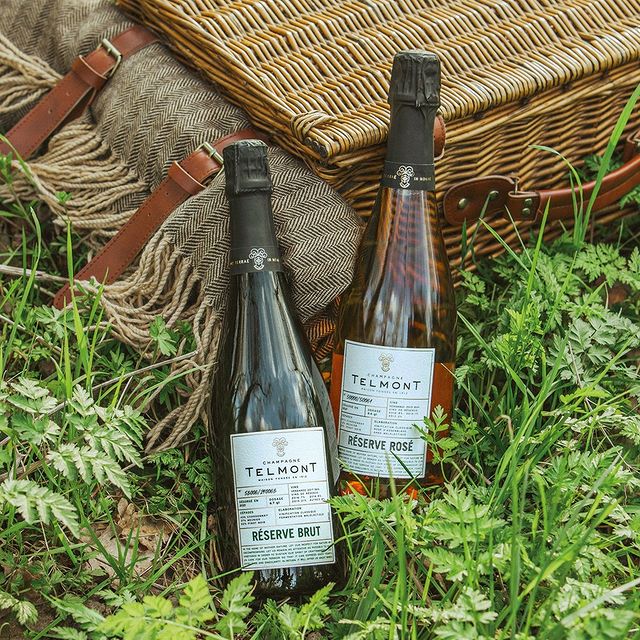
Founded in 1912, the Telmont Champagne House – previously known as ‘J de Telmont’ – is situated in Damery, near Épernay, in France. The house was first established in 1912 by Henri Lhôpital, a brave local winegrower who opened in the wake of the champagne riots. Today, Bertrand Lhôpital, Cellar Master and Head of Viticulture of the Telmont House represents the fourth generation. With an unfailing commitment to the respect of its terroir, the House embraces a highly demanding environmental approach to its processes.
In 2017, it earned its first AB Certification (organic agriculture) for part of its vineyard – the result of a labour of love and patience, proving once more the House’s vow to preserving the environment. The Rémy Cointreau group identified with the values of the House and purchased a majority share in October 2020. Renamed Telmont in 2021, the House embodies a unique style: our champagnes are ethereal yet structured, balanced between tension and freshness – a perfect harmony. Champagne Telmont enables the terroir to express itself through its wines, employing its know-how to help reveal the various facets of nature. You can find out more about Champagne Telmont here.
ADVERTISEMENT. CONTINUE READING BELOW
